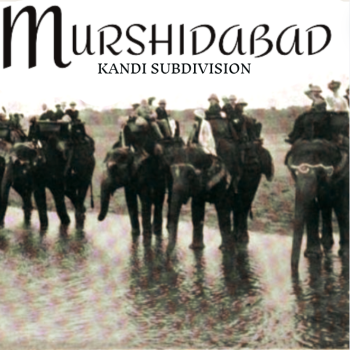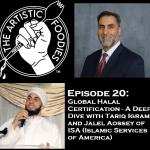 |
|
There’s a bigger picture
|
The ‘judgments’ were swift and quick. Mere days after the arrests of the five American males apprehended in Sargodha, both the New York Times and the Washington Post loudly proclaimed the need for increased scrutiny of Muslim Americans on their front pages.
The New York Times coupled the news of the arrests with the recent killings of soldiers in Fort Hood, Texas. Other newspapers added the arrest of Afghan American Najibullah Zazi to the mix, eager to demonstrate a growing pattern of radicalisation among Muslim American youth.
The five men, whose varied ethnicities are representative of the diversity of the American Muslim community, are still being interrogated by FBI and Pakistani officials. In the meantime, Muslim American groups, living under the ever-present shadow of suspicion, leapt to action. Not only were groups like the Islamic Society of North America (ISNA), the Muslim Public Affairs Council (MPAC) and the Council on American Islamic Relations (CAIR) at the forefront of issuing condemnations, they were also instrumental in helping effectuate the arrests.
CAIR was, in fact, the group that initially contacted the FBI, after being approached by the parents of one of the five suspects. The FBI then moved in and collaborated with Pakistani authorities to carry out the arrests. Information about the five arrestees has since trickled to the public through various news sources.
It is now known that most of those arrested in Sargodha are less than 25 years and hail from the northern Virginia area. Most had a reputation for being peaceful and not part of a radical group. Only one had a minor crime record for certain offences. The Egyptian American, Ramy Zamzam, is believed to be the leader of the group and is a dental student. According to accounts, the five were ‘wholesome’ kids who ‘never talked about politics’ and took part in various community projects.
The most damning evidence they left behind, a farewell video using the familiar format of interspersing Quranic verses with images of atrocities being committed in Iraq and Afghanistan, was what made the father of one of the five contact the authorities. One member of the group, Ahmed Minni, left laudatory comments on YouTube videos featuring jihadists. This YouTube connection has, in fact, become central to the whole investigation. Pakistani authorities have since alleged that the group was using social networking sites such as Facebook to search for jihadist contacts with groups such as Lashkar-i-Taiba and Lashkar-i-Jhangvi.
One report by the Washington Post quotes Pakistani officials as saying that Minni had first contacted a man named Saifullah, a recruiter for the Pakistani Taliban, after the former had posted supportive comments on a jihadist video. A number of US terrorist ‘experts’ expectedly jumped up at this information, proclaiming the Internet as the new realm of terrorist recruitment. One said that the scrutiny of Islamic centres and mosques in the United States meant that terrorist recruiters had now turned to the Internet as a way to radicalise impressionable youngsters.
Amid the uproar and the frantic identification of new profiles and new patterns is the fact that none of the five suspects has actually been charged with a crime. Yet pointing to the absence of charges or the seemingly flimsy potential of a group of five disgruntled youths to actually orchestrate a terror attack are all taboo topics for American Muslims within the American public sphere.
The condemnations by American Muslim groups in the aftermath of the arrests demonstrate the unforgiving cycle of arrest/attack and condemnations that has become the lot of American Muslims. The scrutiny that the community is subjected to and the ever-ready pointing fingers give an idea of their situation.
National press releases issued by the organisations provides something concrete — if repetitive — with which to hold back profile-hungry security experts who tend to lump the entire community with those of Osama bin Laden’s ilk. But this cycle of arrests and condemnations poses risks to the American Muslim community. An escalation in the arrest of potential terrorists presents challenges. While the immediate necessity of issuing press releases that denounce actions that carry the threat of terrorism as in the case of the five arrested in Sargodha cannot be denied, their issuance on a larger scale traps American-Muslims into having an uncritical and politically neutered stance towards security policies.
As the frequency of issued condemnations increases, the emerging picture of American Muslims is a negative one, a picture defined by what they are not rather than what they are. In addition, for the majority of the American public, that pays little attention to Muslims otherwise, the cycle strengthens the connection between American Muslims and terrorism implying to some an inherent connection between the two.
The need for drawing attention to the above dynamic is not meant to suggest that American Muslim groups can or should stop being so vociferous in their condemnation of arrests of potential terror suspects. The point instead is to recommend greater introspection by American Muslim groups regarding their role in an American public sphere dominated by a near-insatiable demand for terrorism arrests.
American security analysts writing about the recent arrests are eager to focus on the possibility of increased radicalisation of American Muslim youth via the Internet but unwilling to look at whether some of the arrests are motivated by a political clime eager to draw a connection between American security and extremist groups in Pakistan.
Also dismally absent from the discussion is the tragedy of the political neutralisation of the American Muslim community. Dissent, a core American political value, is one denied to American Muslims who cannot point to the vacuity of many of the terror charges produced against suspects or that pronouncements about the radicalisation of their community may be premature.
Any critique whatsoever of the policies that lead to terror arrests or that highlight the injustice of condemning those who have yet to be charged with, let alone convicted of, a crime is deemed as apologia favouring terrorism. As the unabated political fever for establishing a connection between AfPak and American security rises; American Muslims must contend not simply with the burden of increased scrutiny but also with a tragic political silencing.
Rafia Zakaria is Associate Editor of altmuslim.com and an attorney living in the United States where she teaches courses on Constitutional Law and Political Philosophy. She can be contacted at rafia.zakaria(at)gmail.com. This article was previously published in Dawn (Pakistan).















